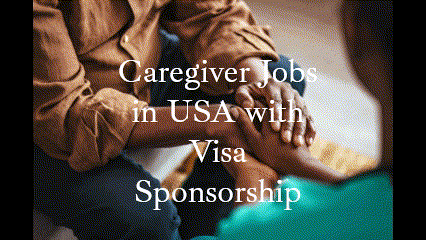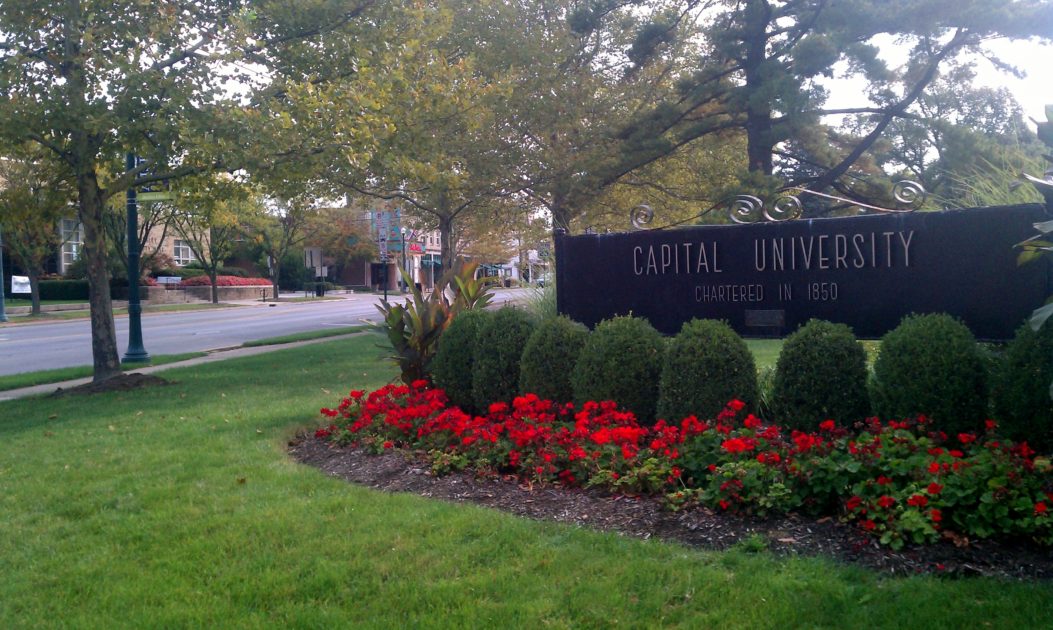Finding a caregiver job with visa sponsorship in the United States can be a life-changing opportunity, especially with the possibility of grants and the chance to earn an annual salary of around $37,000.
For those looking to enter the U.S. healthcare field, 2024 brings a range of programs and pathways designed to help meet the growing demand for skilled caregiving professionals.
This guide covers everything you need to know, from the basics of the visa sponsorship process to helpful tips on securing a job in this field.
What is the $37,000 U.S. Visa Sponsorship Program for Caregivers?
The $37,000 U.S. Visa Sponsorship Program is a work sponsorship pathway, mainly targeting healthcare and caregiving roles. With the increasing demand for caregivers across the United States, employers are actively seeking foreign talent to fill positions in elder care, disability support, and home healthcare.
These roles typically offer salaries starting at around $37,000 annually and can come with visa sponsorship support, allowing foreign nationals to legally work in the U.S. In this program, U.S. employers sponsor the visa applications for qualified foreign workers to fill essential caregiving jobs.
To qualify, you’ll need an employer who can demonstrate a shortage of available U.S. candidates for the position and a genuine need for your services. Once hired, you’ll be able to live and work in the U.S. under a visa suited to your role, such as an H-2B or H-1B visa.
Key Benefits of the $37,000 U.S. Visa Sponsorship for Caregivers
Securing a caregiver job with visa sponsorship offers numerous advantages beyond the immediate job opportunity.
Here’s a look at some of the main benefits:
- Stable Income: With an average starting salary of $37,000, caregiver roles provide a reliable income with the potential for growth based on experience and specialization.
- Healthcare and Other Benefits: Many caregiving jobs offer additional benefits, such as health insurance, retirement savings options, and paid time off, adding financial and personal value.
- Pathway to U.S. Residency: Some sponsored visas allow caregivers to apply for permanent residency over time, paving the way to long-term residency in the United States.
- Opportunity for Career Advancement: Experience in caregiving and healthcare roles can lead to advancement within the sector or even transitions to other healthcare-related fields.
- Diverse Work Environment: The U.S. healthcare system provides an inclusive and dynamic work culture, allowing for skill growth and experience in diverse settings.
Types of Visa Sponsorships Available for Caregivers
Caregiver positions can be sponsored under a variety of U.S. visa programs. The type of visa you’ll need depends on factors like your experience level, the nature of the caregiving role, and the sponsoring employer’s qualifications.
Here are some common types of visas for caregiving professionals:
- H-2B Visa: This visa is for non-agricultural temporary workers and is widely used by caregivers coming to the U.S. to fulfill seasonal or temporary needs.
- H-1B Visa: Though typically for highly specialized roles, some healthcare-related roles, particularly in nursing, may qualify. This visa requires a bachelor’s degree or equivalent in a relevant field.
- J-1 Visa: The J-1 exchange visitor visa is for individuals participating in work-and-study-based exchange visitor programs and can be used for certain healthcare roles with training.
- B-1 Visa: In some cases, B-1 visas can be issued to caregivers accompanying and working for employers temporarily visiting the U.S.
Each visa category comes with specific conditions and time limits, so it’s important to verify which option best fits your background and career goals.
Eligibility Criteria for the $37,000 U.S. Visa Sponsorship Program
To be eligible for visa sponsorship in a caregiving role, applicants generally need to meet specific criteria, which include:
- Relevant Experience: Previous experience in caregiving, nursing, or a similar field is highly valued. Many employers prefer candidates with a history of caregiving, whether in elder care, childcare, or special needs support.
- Educational Background: Although some caregiving roles do not require formal education, a high school diploma or equivalent is usually preferred. Some specialized caregiving roles may require certifications or relevant coursework.
- Language Proficiency: Proficiency in English is essential as it ensures effective communication with patients, families, and healthcare teams.
- Health and Background Checks: Most caregiving roles require passing health screenings and background checks, ensuring that caregivers are physically capable and free from communicable diseases.
- Willingness to Commit: Some visas require caregivers to stay with the sponsoring employer for a specific period, often a minimum of one year.
By meeting these criteria, caregivers improve their chances of obtaining a visa sponsorship and building a stable, rewarding career in the U.S.
Top U.S. Industries and Sectors Offering Visa Sponsorship in 2024
While caregiving roles are prevalent in the healthcare sector, there are specific areas within healthcare where visa sponsorship opportunities are more abundant:
- Home Healthcare Agencies: These agencies specialize in providing caregiving services to clients at home, supporting elder care and rehabilitation needs.
- Long-Term Care Facilities: Nursing homes and assisted living facilities are constantly seeking caregivers to assist with the daily needs of residents.
- Hospitals and Clinics: Some hospitals hire foreign caregivers to assist with non-medical support roles, such as patient assistance and in-home care coordination.
- Rehabilitation Centers: These centers often require caregivers to help patients recover from injuries or surgeries, providing both physical support and companionship.
With the right qualifications, caregivers can find sponsorship opportunities across these diverse settings, making the U.S. an attractive destination for those dedicated to caregiving.
Tips on Finding Visa Sponsorship Opportunities
Finding visa sponsorship for a caregiving position requires strategic job searching and the ability to identify reputable employers.
Here are some tips to get started:
- Online Job Portals: Websites like Indeed, Glassdoor, and LinkedIn frequently feature caregiving jobs that offer visa sponsorship. Search for keywords like “visa sponsorship caregiver” or “foreign caregiver jobs.”
- Recruitment Agencies: Specialized agencies and consulting firms often work directly with U.S. employers to recruit foreign caregivers, helping streamline the visa sponsorship process.
- Professional Networking: Networking within caregiving communities, both online and offline, can help you discover job openings and connect directly with employers.
- Direct Applications to Healthcare Facilities: Many long-term care facilities, hospitals, and healthcare agencies post job openings on their websites. Applying directly can be effective in finding employers open to sponsorship.
- Job Fairs and International Job Events: Many countries host job fairs that feature U.S. employers actively seeking foreign workers in caregiving roles.
- Government Sources: Government sites provide resources that help migration easier. (USCIS),(AILA), The Department of Labor, The Bureau of Consular Affairs, and Visa bulletin are typical examples.
A proactive approach to your job search can significantly increase your chances of securing a visa-sponsored position in the U.S. in 2024.
Application Process for a Sponsored Visa
The application process for a sponsored caregiver visa involves multiple steps:
- Find a Sponsoring Employer: Apply to positions with employers willing to provide visa sponsorship.
- Receive a Job Offer: Once selected, the employer will provide a job offer, which is a prerequisite for initiating the visa sponsorship process.
- Submit Required Documentation: Both the employer and the applicant will need to provide documents, such as identification, proof of qualifications, and evidence of a genuine job requirement.
- File for a Work Visa: The employer submits the appropriate visa application (such as H-2B or H-1B) on your behalf, typically including a petition to U.S. Citizenship and Immigration Services (USCIS).
- Consular Interview: After USCIS approval, you’ll attend an interview at a U.S. consulate or embassy in your home country.
- Travel and Orientation: Once approved, you can travel to the U.S. and undergo any required orientation with your new employer.
The application process can take several months, so it’s essential to prepare well in advance.
Common Mistakes to Avoid in the Visa Sponsorship Process
Avoiding mistakes in the visa application process can make the difference between approval and rejection.
Here are some common pitfalls to watch out for:
- Incomplete Documentation: Ensure all required documents are complete and up-to-date to avoid delays or denial.
- Inaccurate Information: Providing false or misleading information can lead to rejection and even future travel bans.
- Unreliable Employers: Verify the legitimacy of your sponsoring employer to avoid scams or “ghost employers” who do not fulfill their sponsorship commitments.
- Missing Deadlines: Many visa applications have strict deadlines, so it’s essential to monitor all required steps closely.
- Ignoring Health and Background Requirements: Caregiver roles require specific health screenings and background checks. Skipping these could lead to delays or disqualification.
How Visa Sponsorship Can Impact Your Career and Personal Growth
Working in the U.S. as a caregiver can have profound effects on both your career and personal life:
- Enhanced Career Opportunities: U.S. caregiving experience can make you highly marketable worldwide, opening up further employment prospects.
- Increased Earning Potential: The income you earn as a caregiver in the U.S. may be higher than what’s available in your home country, providing financial stability.
- Cross-Cultural Experience: Working in a diverse healthcare environment helps build valuable interpersonal skills and a deep understanding of different cultural practices.
- Professional Development: Exposure to the U.S. healthcare system can provide specialized training and certifications that boost your career long-term.
Final Thoughts on Securing a $37,000 U.S. Caregiver Job with Visa Sponsorship
Securing a caregiver job in the U.S. with a $37,000 salary and visa sponsorship can be a rewarding path. By understanding the visa options, knowing where to look for job opportunities, and preparing for the application process, you can position yourself for success in this field.
Start early, meet all eligibility criteria, and network with potential employers to increase your chances of obtaining a visa-sponsored position in 2024. With persistence and preparation, your goal of working as a caregiver in the U.S. is within reach.








